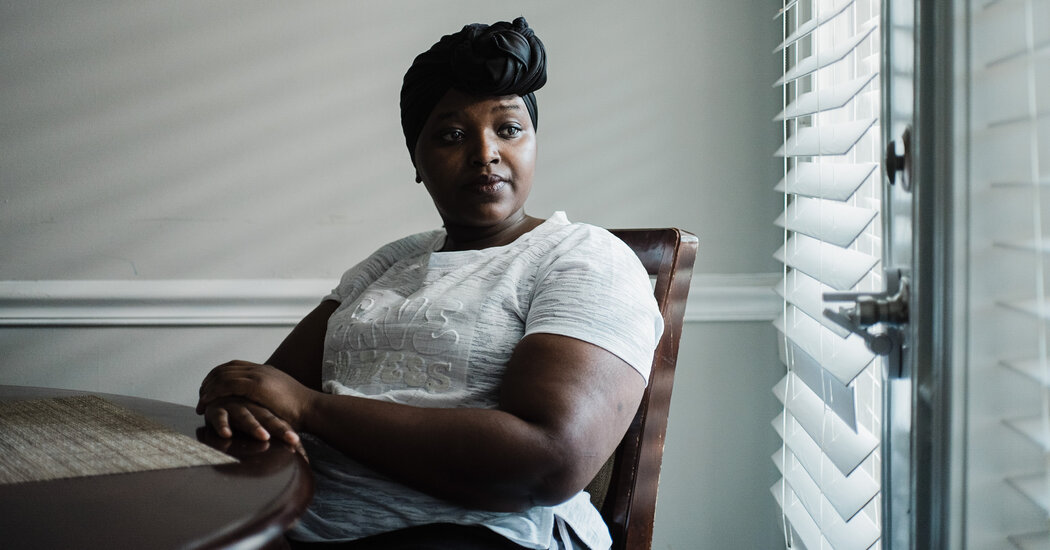ECONOMIC NEWS
Rising Rents Threaten to Prop Up Inflation
Kaitlin Cindrich is facing a $200 monthly increase in rent this August if she and her husband can renew their apartment lease in Provo, Utah. That 25 percent jump is not something she expected, and the 21-year-old fears she may have to skip doctor appointments for her autoimmune disease to keep up with the payments.Still, she acknowledges there isn’t much choice but to pay more. “We are hoping to stay because everything is so expensive right now that I would be paying the same whether I’m here or somewhere else,” Ms. Cindrich said.The rental market, which slumped during the pandemic, has snapped back more quickly than many economists predicted, and renters across the country are facing sticker shock. When the pandemic hit, many people who lost their jobs discontinued their apartment leases to live with parents or roommates temporarily. Others fled big cities out of health concerns. Apartments went empty, and landlords began offering incentives, such as a free month, to entice tenants.Now, as people move out on their own again or return to cities and office jobs, and as existing renters find they can’t afford to buy a home in a booming housing market, demand for apartments and single-family rentals is rebounding — and even looking hot in some places. Rents last month rose 7 percent nationally from a year earlier, Zillow data shows. While that was measured against a weak June 2020, the gain was also a robust 1.8 percent from May.“After a year, jobs are coming back strongly, and this is recreating the housing demand for rental units and occupancy is rising,” said Lawrence Yun, chief economist at the National Association of Realtors.If rents continue to take off, it could be bad news both for those seeking housing and for the nation’s inflation outlook. Rental costs play an outsize role in the Consumer Price Index, so a meaningful rise in them could help keep that closely watched government price gauge, which has picked up sharply, higher for longer. Rents are only about half as important to the Federal Reserve’s preferred Personal Consumption Expenditures inflation index, but a long bout of high C.P.I. inflation may influence consumers’ expectations for future price gains, which could in turn quicken them.Consumer prices jumped a rapid 5.4 percent in the year through June, but much of the increase was tied back to the economy’s reopening from the pandemic. Policymakers at the Fed and White House have maintained that today’s strong price pressures should fade as the economy gets back to normal, as one-off problems pushing up used car prices are resolved and as a spike in demand that’s elevating furniture and washing machine costs begins to abate.Yet that’s where housing costs could kick in. Measures of rent and what’s called “owners’ equivalent rent” — which uses rental data to try to put a price on how much owners would pay for their housing if they hadn’t bought a home — make up nearly one-third of the Consumer Price Index. Both tend to move slowly, but are defying expectations that they would take time to bounce back.“We’re seeing owners’ equivalent rent move up fairly sharply already,” said Alan Detmeister, an economist at UBS and a former Fed staff official. “I expect it’s going to get worse later this year and into early next.”He and other economists said it was too early to tell to what extent, and for how long, rents would prop up overall prices.“I do think we’ll see some upside from rents, and that will offset some of the declines in goods categories,” said Michelle Meyer, head of U.S. economics at Bank of America. But the “only way” that rents rise enough to keep inflation uncomfortably high, she added, is “if wages are persistently higher.”How much landlords can charge hinges on how much tenants can afford. Lower-paid workers are seeing strong pay gains, but many economists expect those to fade as the economy gets through reopening.Another key factor, Mr. Yun said, is whether “homebuilders are being active to supply new homes and apartments to match up with this rise in rent.”Daily Business BriefingUpdated July 22, 2021, 10:52 a.m. ETData do suggest that a substantial new supply of apartments should be on the way this year, but it’s unclear whether they will match up with the demand in location and timing.For now, the rental experience diverges across markets. Rents have appreciated rapidly in places like Boise, Idaho; Spokane, Wash.; and Phoenix, while big cities on the coasts have lagged, based on Zillow data. Rents in New York City and San Francisco are recovering quickly but remain cheaper than two years ago.In New York, “the rental market was crushed,” said Jonathan Miller, chief executive of Miller Samuel, a local real estate appraisal firm. But the pace of new leases over the past three months, with tales of bidding wars, is turning that around. Mr. Miller expects rents to fully recover as companies bring workers back to the office this autumn, pulling them back from far-flung remote work locations, he said.“There’s going to be another wave,” he added. “We’re just past peak Zoom.”Data from Apartment List, a listing site, confirms the trend visible in the Zillow numbers: So far in 2021, rental prices nationally have grown 9.2 percent, compared with the 2 to 3 percent that is typical from January to June. According to the most recent data available, prices were higher than economists at Apartment List would have expected had prepandemic trends persisted.“In the short run, prices are going to continue to soar, because occupancy rates are sky high right now,” said Igor Popov, an economist at Apartment List. He said that price gains should moderate as supply increased, but that it was unclear when that would happen.In the meantime, the hot housing market should keep rental demand strong.“Rents are a trailing spouse to house price appreciation,” said Nela Richardson, chief economist at the employment data provider ADP, who previously worked at the real estate company Redfin. “You have a housing market that is chronically undersupplied, and has been for a decade. That isn’t going away.”Higher rental costs can have a big impact on people’s lives. Christine Gitau, 23, of Homewood, Ala., is going back to live with her parents because she can’t afford the $100 increase to renew her lease on the $530-a-month apartment she started renting last July.“I’m very frustrated, angry and stressed because of the rent hike,” Ms. Gitau said.Ms. Cindrich in Provo, a full-time student at Brigham Young University, worries she will have to apply for more student loans to pay for her apartment or cut expenses in other areas.“I have a severe autoimmune disease, and I spend hundreds of dollars each month on medication,” she said. “The rent hike probably means I might not be able to go to my monthly doctor appointments.”That human impact makes rising rent a political challenge, especially when the Biden administration is already fending off attacks from Republicans over the burst in inflation.Administration officials say they are watching housing prices and their effects on inflation. They continue to insist that most of the price pressures in the economy are temporary.The officials, and President Biden himself, have also pushed for additional spending measures that would over time increase the supply of housing and, the officials say, hold down rental increases, spikes in housing prices and inflationary pressure.Mr. Biden’s $4 trillion economic agenda includes $213 billion to help jump-start more affordable housing. Those efforts were not included in the bipartisan infrastructure agreement that he struck with centrist lawmakers, but they could be end up, at least in part, in a go-it-alone spending bill that Democrats plan to push this summer in Congress.Even if they succeed, those efforts would take years to bear fruit.Some, like Dr. Popov, expect recent gains to moderate on their own this year. Others said bigger increases might lay ahead: Many consumers are flush with cash from government stimulus checks, and the Fed’s cheap-borrowing policies are heating up the housing market.“There’s a tremendous amount of stimulus, and I think that has potential to create upward pressure on rent prices,” Mr. Miller, the appraisal executive, said.
Source link













